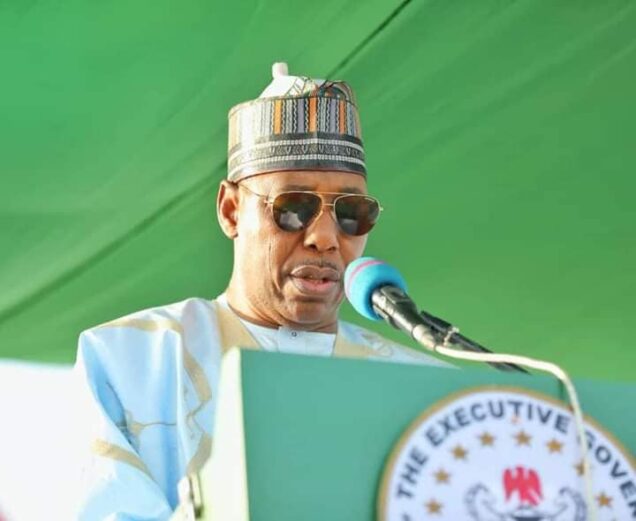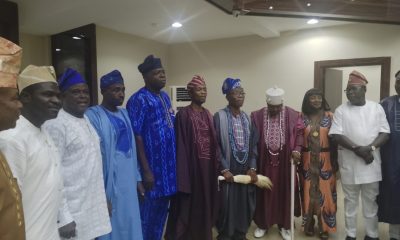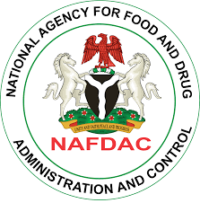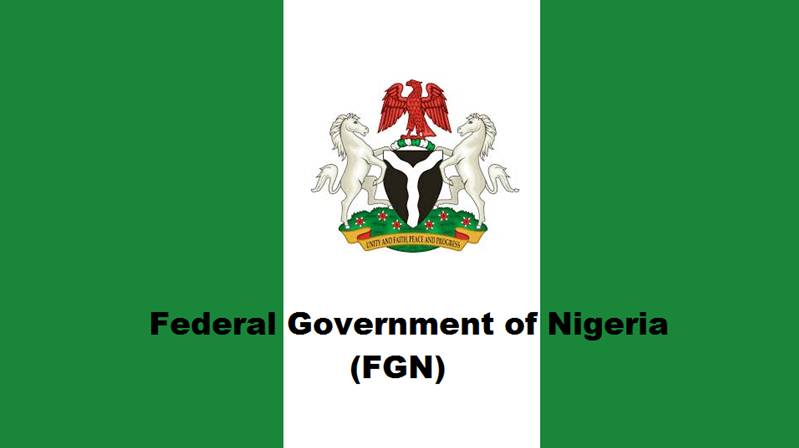Headlines
Nigerian doctors in UK lament exploitation, slave labour

Nigerian medical doctors and their counterparts from developing countries working in the United Kingdom have lamented exploitation in the course of their work.
This was revealed by BBC on Tuesday adding that an investigation proved that Nigerian doctors recruited by a British healthcare company are expected to work in private hospitals under conditions not allowed in the National Health Service (NHS).
While the British Medical Association (BMA) has described the situation as “shocking”, some of the hospitals denied the allegations as claimed by Nigerians.
Read also: We don’t have enough medical doctors — NMA disagrees with Minister of Health
BBC spoke to several foreign medical practitioners and one of them was a young Nigerian doctor, Augustine Enekwechi who worked at the private Nuffield Health Leeds Hospital in 2021.
Enekwechi said his working hours were extreme – on 24 hours a day for a week at a time. He claimed he was unable to leave the hospital grounds, adding that the working environment looked like “a prison.”
The doctor further said the challenges could pose health risks to patients in the hospital.
“I knew that working tired puts the patients at risk and puts myself also at risk, as well for litigation,” Enekwechi said. “I felt powerless… helpless, you know, constant stress and thinking something could go wrong.”
Nuffield Health refutes the allegations
Nuffield Health disputed those working hours, saying its doctors are offered regular breaks, time off between shifts, and the ability to swap shifts if needed. The company added that “the health and well-being of patients and hospital team members” is its priority.
Enekwechi was hired out to the Nuffield Health Leeds Hospital by a private company – NES Healthcare. It specialises in employing doctors from overseas, many from Nigeria, and using them as Resident Medical Officers (RMOs) – live-in doctors found mainly in the private sector.
He said he was elated when he first got the job that he hardly looked at the NES contract. He said the company excluded him from legislation that protects UK workers from excessive working hours – the Working Time Directive – and left him vulnerable to a range of punishing salary deductions.
He was, however, not the only person involved. The BMA and the front-line lobbying group the Doctors’ Association has given the BBC’s File on 4 and Newsnight exclusive access to the findings of a questionnaire put to 188 Resident Medical Officers. Most of the doctors were employed by NES but some were with other employers.
It found that 92% had been recruited from Africa and most – 81% – were from Nigeria. The majority complained about excessive working hours and unfair salary deductions.
WHO’s warning
For years now, the World Health Organization (WHO) has cautioned against the “active recruitment” of doctors and nurses from developing countries with severe shortages of medical personnel.
The WHO has assembled a list of 47 such countries – most of them in Africa. The UK government has incorporated that list into its own code of practice – calling it the “red list”. In effect, it makes Nigeria a no-go destination for British medical recruiters.
So it becomes a disturbing concern how Nigerian doctors are included in the UK. Meanwhile, the report from Nigerian doctors planning to still travel out of the country was troubling.
Nigeria’s doctors planning to travel
According to the report, BBC said in an exam hall in Lagos, it discovered hundreds of doctors queuing to take what was called a Professional and Linguistic Assessments Board test – or PLAB 1.
The paper was set by the General Medical Council (GMC) in London and the first step required by the British medical authorities to secure a licence to work in the UK.
The doctors explained they were attracted by the potential of higher salaries and better working conditions. The event was being overseen by staff from the British Council – an organisation sponsored by the Foreign Office.
GMC roles in other countries
The GMC also offers the exams in several other red-list countries – Ghana, Sudan, Pakistan and Bangladesh.
Both the GMC and British Council deny they are involved in “active recruitment” and say they’re simply helping provide a service for doctors wanting to come to the UK independently – something that is allowed under the guidelines.
In Enekwechi’s case, he was studying for the second part of those PLAB exams in the UK, when he was approached by NES Healthcare and later offered visa sponsorship and a potential job.
While it appeared to have been “active recruitment” – NES said it was not a recruitment agency and, as such, only engaged with doctors from overseas once they have already committed to practising in the UK.
But the Department of Health and Social Care disclosed that the UK code of practice did apply to NES – so the company was in breach of it.
Other doctor’s reactions
With respect to other African doctors recruited in this way by NES. They all had similar stories about what the terms and conditions of their contracts meant in reality, once they had been hired out to private UK hospitals.
Headlines
Noble Ladies Champion Women’s Financial Independence at Grand Inauguration in Abuja

Women from diverse backgrounds across Nigeria and beyond gathered at the Art and Culture Auditorium, Abuja, for the inauguration and convention of the Noble Ladies Association. The event, led by the association’s Founder and “visionary and polished Queen Mother,” Mrs. Margaret Chigozie Mkpuma, was a colourful display of feminine elegance, empowerment, and ambition.
The highly anticipated gathering, attended by over 700 members and counting, reflected the association’s mission to help women realise their potential while shifting mindsets away from dependency and over-glamorization of the ‘white collar job.’ According to the group, progress can be better achieved through innovation and creativity. “When a woman is able to earn and blossom on her own she has no reason to look at herself as a second fiddle,” the association stated.
One of the association’s standout initiatives is its women-only investment platform, which currently offers a minimum entry of ₦100,000 with a return of ₦130,000 over 30 days—an interest rate of 30 percent. Some members invest as much as ₦1 million, enjoying the same return rate. Mrs. Mkpuma explained that the scheme focuses on women because “women bear the greater brunt of poverty” and the platform seeks “to offer equity in the absence of economic equality.”
Education is also central to the Noble Ladies’ mission, regardless of age. Their mantra, “start again from where you stopped,” encourages women to return to school or upgrade their skills at any stage in life. The association believes that financial stability is vital in protecting women from cultural practices that dispossess widows of their late husbands’ assets, while also enabling them to raise morally and socially grounded families.
Founded on the vision of enhancing women’s skills and achieving financial stability, the association rests on a value system that discourages pity and promotes purpose. “You have a purpose and you build on that purpose to achieve great potentials and emancipation,” Mrs. Mkpuma said.
A criminologist by training and entrepreneur by practice, she cautions against idleness while waiting for formal employment. “There are billions in the informal and non-formal sectors waiting to be made,” she said, rejecting the “new normal of begging” and urging people to “be more introspective to find their purpose in life and hold on to it.”
Mrs. Mkpuma’s management style keeps members actively engaged, focusing on vocational skills and training to prepare them for competitive markets. She is exploring “innovative integration of uncommon technologies” and is already in talks with international franchises to invest in Nigeria, with Noble Ladies as first beneficiaries.
The association’s core values include mutual respect, innovation, forward-thinking, equal opportunity, and financial emancipation. With plans underway to establish a secretariat in the heart of Abuja, the group aims to expand its impact.
The event drew high-profile guests, including former Inspector General of Police, Mike Okiro, and a host of VIPs, marking a significant milestone in the association’s drive for women’s empowerment.
Headlines
NEPZA, FCT agree to create world-class FTZ environment

The Nigeria Export Processing Zones Authority (NEPZA) has stepped in to resolve the dispute between the Federal Capital Territory Administration and the Abuja Technology Village (ATV), a licensed Free Trade Zone, over the potential revocation of the zone’s land title.
Dr. Olufemi Ogunyemi, the Managing Director of NEPZA, urged ATV operators and investors to withdraw the lawsuit filed against the FCT administration immediately to facilitate a roundtable negotiation.
Dr. Ogunyemi delivered the charge during a courtesy visit to the Minister of the Federal Capital Territory, Barrister Nyesom Wike, on Thursday in Abuja.
You will recall that the ATV operators responded to the revocation notice issued by the FCT administration with a lawsuit.
Dr. Ogunyemi stated that the continued support for the growth of the Free Trade Zones Scheme would benefit the nation’s economy and the FCT’s development, emphasizing that the FCT administration recognized the scheme’s potential to accelerate industrialisation.
Dr. Ogunyemi, also the Chief Executive Officer of NEPZA, expressed his delight at the steps taken by the FCT minister to expand the economic frontier of the FCT through the proposed Abuja City Walk (ACW) project.
Dr. Ogunyemi further explained that the Authority was preparing to assess all the 63 licensed Free Trade Zones across the country with the view to vetting their functionality and contributions to the nation’s Foreign Direct Investment and export drives.
“I have come to discuss with His Excellency, the Minister of the Federal Capital Territory on the importance of supporting the ATV to succeed while also promoting the development of the Abuja City Walk project. We must work together to achieve this for the good of our nation,” he said.
On his part, the FCT Minister reiterated his unflinching determination to work towards President Bola Ahmed Tinubu’s Renewed Hope Agenda by bringing FDI to the FCT.
“We must fulfil Mr. President’s promises regarding industrialization, trade, and investment. In this context, the FCT will collaborate with NEPZA to review the future of ATV, a zone that was sponsored and supported by the FCT administration,” Wike said.
Barrister Wike also said that efforts were underway to fast-track the industrialisation process of the territory with the construction of the Abuja City Walk.
The minister further said the Abuja City Walk project was planned to cover over 200 hectares in the Abuja Technology Village corridor along Airport Road.
According to him, the business ecosystem aimed to create a lively, mixed-use urban center with residential, commercial, retail, hospitality, medical, and institutional facilities.
He added that the ACW would turn out to be a high-definition and world-class project that would give this administration’s Renewed Hope Agenda true meaning in the North-Central Region of the country.
Barrister Wike also indicated his continued pursuit of land and property owners who failed to fulfil their obligations to the FCT in his determination to develop the territory.
Headlines
Benue IDPs block highway, demand return to ancestral homes

Vehicular movement along the Yelwata axis of the Benue–Nasarawa highway was brought to a standstill on Wednesday as Internally Displaced Persons, IDPs, staged a protest, demanding immediate return to their ancestral homes.
The protesters, believed to be victims of persistent attacks by suspected herdsmen, blocked both lanes of the busy highway for several hours, chanting “We want to go back home”.
The protest caused disruption, leaving hundreds of motorists and passengers stranded.
Eyewitnesses said the displaced persons, many of whom have spent years in overcrowded IDP camps, are expressing deep frustration over the government’s delay in restoring security to their communities.
“We have suffered enough. We want to return to our homes and farms,” one of the protesters told reporters at the scene.
Security personnel were reportedly deployed to monitor the situation and prevent any escalation, though tensions remained high as of press time.
Efforts to reach the Benue State Emergency Management Agency, SEMA, and other relevant authorities for comment were unsuccessful.
-

 Headlines4 years ago
Headlines4 years agoFacebook, Instagram Temporarily Allow Posts on Ukraine War Calling for Violence Against Invading Russians or Putin’s Death
-

 Headlines4 years ago
Headlines4 years agoNigeria, Other West African Countries Facing Worst Food Crisis in 10 Years, Aid Groups Say
-

 Foreign4 years ago
Foreign4 years agoNew York Consulate installs machines for 10-year passport
-

 News1 year ago
News1 year agoZero Trust Architecture in a Remote World: Securing the New Normal
-

 Entertainment3 years ago
Entertainment3 years agoPhyna emerges winner of Big Brother Naija Season 7
-

 Headlines2 years ago
Headlines2 years agoNigeria Customs modernisation project to check extortion of traders
-

 Entertainment2 years ago
Entertainment2 years agoMovie download platform, Netnaija, announces closure
-

 Economy2 years ago
Economy2 years agoWe generated N30.2 bn revenue in three months – Kano NCS Comptroller















